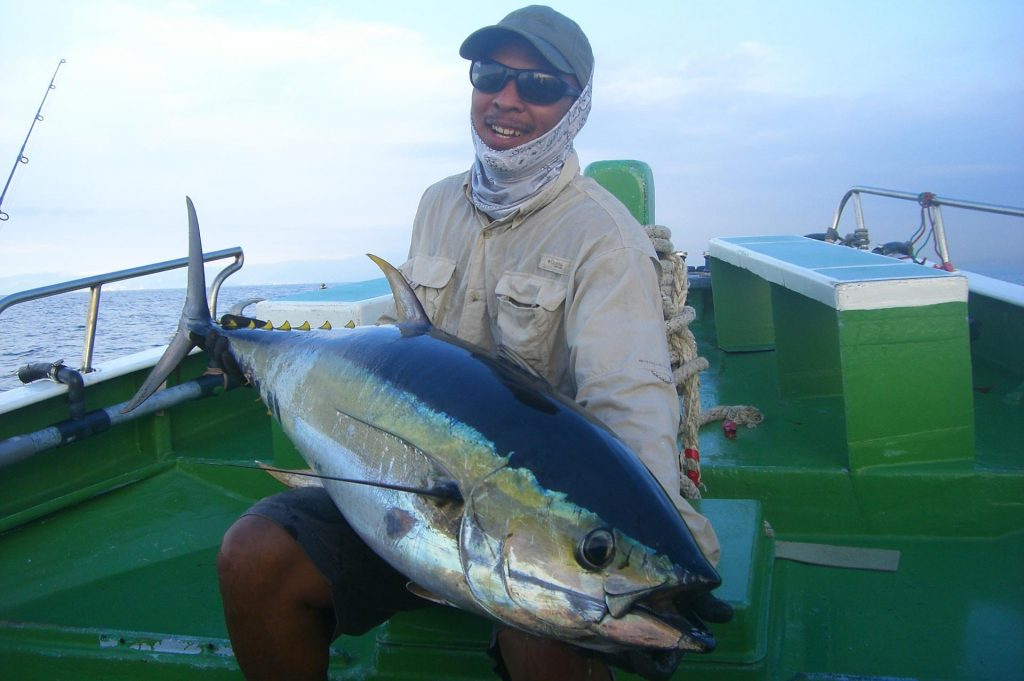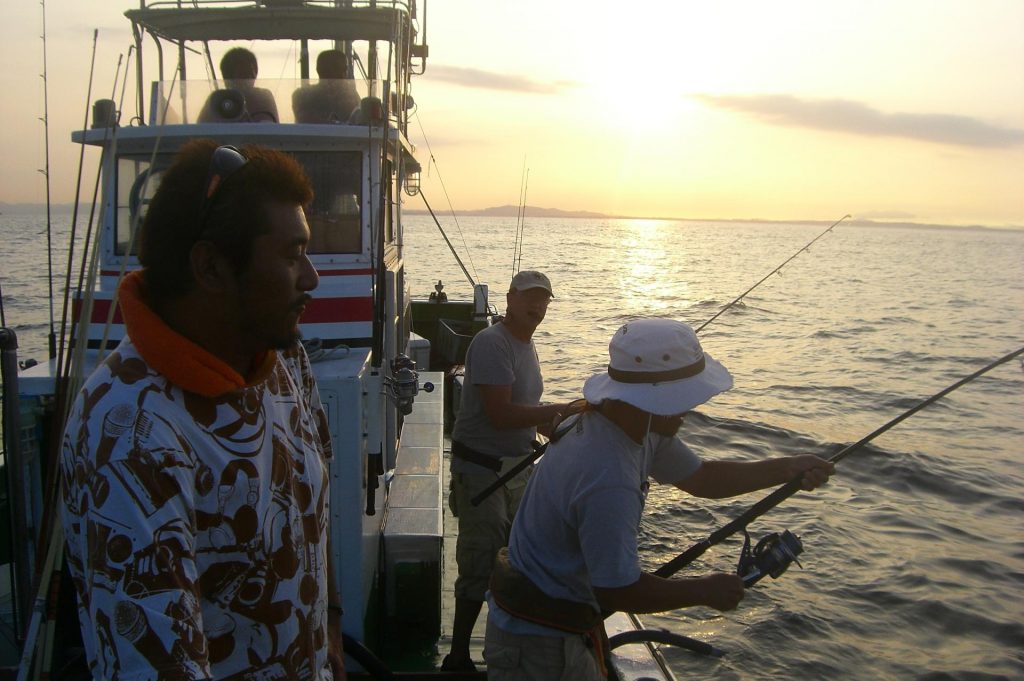I don’t understand perfectionists. In my world when something goes down perfectly, it always seems incidental. Some might disagree but, the way I see it, there are too many random factors that must come together at just the right time for something truly perfect to happen.
Catching a tuna in Japan is an example.

Last summer I spent a lot of time waiting for the right combination of weather, tides and baitfish activity to have a “perfect” tuna bite―something that starts at the microscopic level. There has to be enough plankton concentrated in ocean water warm enough to draw baitfish near the surface. The thing is, tuna hate warm water, so it’s necessary to search for them in stretches of ocean where warm and cold currents run into or next to each other.
A variety of satellite imaging technology is used to keep track of oceanic conditions and predict where pelagic fish are likely to show up, but it’s largely unavailable to the sport angling community in Japan. To be honest, I think this is a good thing.
I may be shooting myself in the foot by mentioning this, but I have to say offshore fishing in many parts of this country is nothing short of a siege. There are too many boats and next to no regulations aimed at protecting fish stocks. The reasons have to do with a lot of political issues I don’t have space here into which to delve.

Under these circumstances, the key to catching tuna really boils down to hitting the water early and hoping your skipper finds a shoal before anyone else. It’s 90 percent luck. Still, anglers who get within casting range of tuna feeding at the surface had better know what they are doing, as there is usually only one shot to get a bite whenever the boat approaches a shoal.
Many put up with the odds because they are “jonesing” for the rush that comes when they actually get into position for a good cast. In late August, I had my moment of “perfect luck” and hooked into a 36-kilogram yellow fin I subdued after a 20-minute fight. To put this into perspective, my friends got only sharks, and among the two dozen boats in Sagami Bay, there was only one other tuna caught that day.
I come away from these experiences saying it’s not worth the trouble but, anytime there is news of large tuna in the area, I’m quick to clear my schedule and get on the water. I guess some of us never learn, and who needs perfection anyway?





